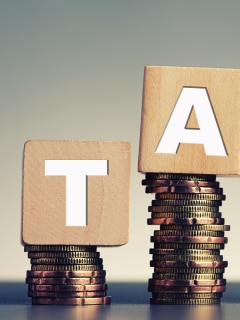CKYC Registry
-
Customer Service Contact us Service request Locate a branch
Find all the help you need
Scan the QR, get our app, and find help on your fingertips

Help CenterSupport topics, Contact us, FAQs and more
-
Login
Are you ready for an upgrade?
Login to the new experience with best features and services
-
Login
Are you ready for an upgrade?
Login to the new experience with best features and services
- Accounts
-
Deposits
IDFC FIRST Bank Deposits
View all Deposits -
Loans
IDFC FIRST Bank Loans
View all Loans - Wealth & Insure
-
Payments
IDFC FIRST Bank Payments
View all Payments -
Cards
IDFC FIRST Bank Cards
View all Cards - Blogs
- Corporate Account
-
Cash Management Services
IDFC FIRST Bank Cash Management Services
View all Cash Management Services - Supply Chain Finance
-
Corporate Lending
IDFC FIRST Bank Lending
View all -
Treasury
IDFC FIRST Bank Treasury
See more details - NBFC Financing
Support topics, Contact us, FAQs and more
- IDFC FIRST Bank Accounts
-
Savings Account
-
Corporate Salary
Account -
Senior Citizens
Savings Account -
First Power
Account -
Current Account
-
NRI Savings
Account -
TASC Institutional
Account -
Savings Account
Interest Calculator
- IDFC FIRST Bank Deposits
-
Fixed Deposit
-
Recurring Deposit
-
NRI Fixed Deposit
-
Safe Deposit Locker
-
FD Calculator
-
RD Calculator
- IDFC FIRST Bank Loans
-
Personal Loan
-
Consumer Durable
Loan -
Home Loan
-
Business Loan
-
Professional Loan
-
Education Loan
-
New Car Loan
-
Pre-owned Car Loan
-
Two Wheeler Loan
-
Pre-owned Two
Wheeler Loan -
Commercial Vehicle
Loan -
Gold Loan
-
Loan Against Property
-
Loan Against Securities
-
Easy Buy EMI card
-
Personal Loan
EMI Calculator -
Education Loan
EMI Calculator -
Home Loan
EMI Calculator
- IDFC FIRST Bank Wealth & Insure
-
FIRST Select
-
FIRST Wealth
-
FIRST Private
-
Mutual Funds
-
Sovereign Gold Bond
-
Demat Account
-
Term Insurance
-
Life Insurance
-
Health Insurance
-
General Insurance
-
Bonds
-
Loan Against
Securities -
Portfolio Management
Service
- IDFC FIRST Bank Payments
-
FASTag
-
Credit Card
Bill Payments -
UPI
-
Funds Transfer
-
Forex Services
-
Pay Loan EMI
- IDFC FIRST Bank Cards
-
Ashva :
Metal Credit Card -
Mayura :
Metal Credit Card -
FIRST Millennia
Credit Card -
FIRST Classic
Credit Card -
FIRST Select
Credit Card -
FIRST Wealth
Credit Card -
FIRST WOW!
Credit Card -
Deals
-
Debit Cards
-
Co-branded Cards
-
Credit Card
EMI Calculator -
FIRST Corporate
Credit Card -
FIRST Purchase
Credit Card -
FIRST Business
Credit Card
- Premium Metal Credit Cards
-
AshvaLifestyle1% Forex₹2,999
-
MayuraLifestyleZero Forex₹5,999
-
FIRST PrivateInvite Only
- Best for travellers
-
MayuraZero ForexMetal₹5,999
-
Ashva1% ForexMetal₹2,999
-
FIRST WOW!Zero ForexTravelLifetime Free
-
FIRST SWYPTravel OffersEMI₹499
-
FIRST Select1.99% ForexLifestyleLifetime Free
-
FIRST Wealth1.5% ForexLifestyleLifetime Free
-
Club VistaraTravelLifestyle₹4,999
-
IndiGo IDFC FIRST Dual Credit CardTravelLifestyle₹4,999
- Max benefits, Free for life
-
FIRST Classic10X RewardsShoppingNever Expiring Rewards
-
FIRST Millennia10X RewardsShoppingNever Expiring Rewards
-
FIRST Select10X RewardsLifestyle1.99% Forex
-
FIRST Wealth10X RewardsLifestyle1.5% Forex
-
FIRST WOW!RewardsTravelZero Forex
-
LIC ClassicRewardsInsuranceShopping
-
LIC SelectRewardsInsuranceShopping
- Reward Multipliers
-
AshvaLifestyleMetal₹2,999
-
MayuraLifestyleZero Forex₹5,999
-
FIRST ClassicNever Expiring RewardsShoppingLifetime Free
-
FIRST MillenniaNever Expiring RewardsShoppingLifetime Free
-
FIRST SelectNever Expiring RewardsLifestyleLifetime Free
-
FIRST WealthNever Expiring RewardsLifestyleLifetime Free
- Rewards & Credit on UPI
-
FIRST Power+FuelUPI₹499
-
FIRST PowerFuelUPI₹199
-
FIRST EA₹NVirtual1% Cashback₹499
-
FIRST DigitalVirtualUPI₹199
-
IndiGo IDFC FIRST Dual Credit CardUPITravelDual cards
- Fuel and Savings
-
FIRST PowerRewardsUPI₹199
-
FIRST Power+RewardsUPI₹499
-
LIC ClassicRewardsInsuranceShopping
-
LIC SelectRewardsInsuranceShopping
- Express and Flaunt
-
AshvaMetal1% Forex₹2,999
-
MayuraMetalZero Forex₹5,999
-
FIRST SWYPEMIOfferMAX₹499
-
FIRST MillenniaRewardsShoppingLifetime Free
- FD Backed rewarding Credit Cards for all
-
FIRST EA₹NVirtualCashback₹499
-
FIRST WOW!Zero ForexTravelLifetime Free
-
CreditPro Balance TransferTransfer & SaveReduce InterestPay Smartly
- IDFC FIRST Bank NRI Forex Solutions
-
Send money to India-Wire transfer
-
Send money to India-Digitally
-
Send money abroad
-
Max Returns FD (INR)
- IDFC FIRST Bank MSME Accounts
-
Platinum Current
Account -
Gold
Current Account -
Silver Plus
Current Account -
Merchant Multiplier
Account -
Agri Multiplier
Account -
TASC Institutional
Account -
Dynamic Current
Account -
World business
Account -
First Startup
Current Account
- IDFC FIRST Bank Business Loans
-
Business Loan
-
Professional Loan
-
Loan Against Property
-
Business Loan for Women
-
Working Capital Loan
-
Construction Equipment Loan
-
Machinery Loan
-
Healthcare Equipment Loan
- IDFC FIRST Bank Business Solutions
-
Payment Solutions
-
Tax Payments
-
Doorstep Banking
-
Point of Sale (POS)
-
Escrow Accounts
-
NACH
-
Payment Gateway
-
UPI
-
Virtual Accounts
-
As per amendment in the Income Tax Rules, PAN or Aadhaar are to be mandatorily quoted for cash deposit or withdrawal aggregating to Rupees twenty lakhs or more in a FY. Please update your PAN or Aadhaar. Kindly reach out to the Bank’s contact center on 1800 10 888 or visit the nearest IDFC FIRST Bank branch for further queries.
-
-
Most Searched
Sorry!
We couldn’t find ‘’ in our website
Here is what you can do :
- Try checking the spelling and search
- Search from below suggestions instead
- Widen your search & try a more generic keyword
Suggested
Get a Credit Card
Enjoy Zero Charges on All Commonly Used Savings Account Services
Open Account Now
Savings Account
How to reduce income tax: Strategies for effective tax planning
Summary: In this new financial year, learn how to reduce income tax liability and improve income tax planning by investing in tax-saving instruments, availing of deductions and exemptions, planning your investments strategically and more.
Albert Einstein once said that the hardest thing to understand in the world is taxes. But paying taxes is one of life's constants, and as the financial year comes to an end, we all look for the best ways to save more and reduce our tax liability.
Proper income tax planning requires a certain measure of financial discipline to pay off in the long term. In this article, we will discover how to reduce income tax with simple tips and strategies, that can lead to effective income tax planning.
Investing in tax-saving instruments
We often overlook our tax liability on passive income, i.e. where we put all our savings and then earn income. With the right kind of investments, you can deduct taxes for this income in your annual income tax return. The relevant sections you should be aware of are -
· Section 80 C of the Income Tax Act provides for a deduction of up to Rs 1.5 lakh for investments made in life insurance premiums, Public Provident Fund (PPF), National Pension Scheme (NPS), Equity Linked Savings Scheme (ELSS), payments made towards the principal sum of a home loan, Sukanya Samriddhi Yojana, National Savings Certificate (NSC), Senior Citizens Savings Scheme (SCSS), etc.
· Under Section 80 CCC of the Act, a deduction can be claimed by payment towards annuity or pension plans of life insurance companies
· Section 80 CCD(1) provides for deduction on payments to the National Pension System (NPS) and the Atal Pension Yojana
· Section 80 CCD(2) provides for a deduction on an employer's contribution towards NPS (up to 10% of salary + dearness allowance)
· Section 80 CCE has laid down a consolidated maximum limit of Rs 1.5 lakhs for all the deductions stated above
· You can also claim a deduction of up to Rs 50,000 above this limit under Section 80CCD(1B) for an investment in National Pension Scheme (NPS)
Also read - Want to move to the new tax regime and stop ELSS funds? Think again!
READ MORE
Deductions and exemptions
· Health insurance
You can avail of deductions up to Rs 25,000 (below age 60) and Rs 50,000 (above age 60) under Section 80D of the Income Tax Act by purchasing health insurance for yourself, your spouse, and your dependent children.
An additional deduction of Rs 25,000 can be claimed on health insurance for parents (below age 60) and Rs 50,000 (above age 60). These limits include an amount of Rs 5,000, which can be claimed for a preventive health check-up. However, a deduction under 80D for health insurance cannot be claimed if the payment is made in cash. This deduction is not available for payments made on behalf of working children, siblings, grandparents, or any other relative.
· Medical expenses
You can claim a deduction on medical treatment or maintenance in respect to specified diseases, for yourself or dependent family members, under Section 80DDB of the Income Tax Act up to Rs 75,000.
· Home loan
If you have taken a home loan, you can avail of a deduction of up to Rs 2 lakhs on the interest and processing charges paid on the loan under Section 24 of the Income Tax Act.
If you have rented the property, a deduction of the entire amount is available. This deduction is after considering any loss set off under the house property against other incomes, subject to a maximum of Rs. 2 lakhs. The balance loss can be carried forward for set-off against house property income in eight subsequent years.
As mentioned, you can also claim a deduction of up to Rs 1.5 lakh under Section 80C for the principal repayment, stamp duty payment and registration charges.
· Rent paid
If you are living in rented accommodation and are not in receipt of HRA (Housing Rent Allowance) or are self-employed, you can claim a deduction for rent paid under Section 80GG of the Income Tax Act. The deduction would be lower than Rs 5,000, 25% of the total annual income or rent paid over and above 10% of annual income.
· Donation
Donations made to specific charitable institutions and trusts are eligible for deduction under Section 80G of the Income Tax Act.
· Education loan
Interest paid on Education Loans is eligible for a deduction under Section 80E of the Income Tax Act for a maximum of eight years. The same is available for education loans taken for your spouse, children, or anyone for whom you are a legal guardian.
· Leave Travel Allowance (LTA)
LTA is paid by an employer to cover your and your family's travel expenses. This only includes an exemption on the amount paid for the mode of travel, such as train, aeroplane or bus, but does not include accommodation, food, or any other personal expenses. This deduction can be claimed twice in a block of four years.
Also read - Save tax with your study loan: Section 80E deduction of income tax act
Plan investments strategically
You can claim a tax deduction on the interest earned from savings bank accounts, post offices, or cooperative societies under Section 80TTA up to a maximum of Rs 10,000. IDFC FIRST Bank offers one of the best interest rates in the market, up to 7.00%, which would be a worthwhile investment opportunity to claim the deduction.
Let's consider that you sell a property and would like to save on capital gains; you can claim an exemption for long-term capital gains if you buy or construct a residential house within a specified time period. The amount not invested by the due date of filing the ITR must be deposited with a bank under the Capital Gains Account Scheme (CGAS), which can be utilised for the purchase or construction of the residential house within the specified period. Alternatively, you can invest the amount from capital gains in capital gain bonds of specified financial institutions within six months from the date of sale of the house, for five years. Interest on such bonds is taxable.
Split income with family membersIn case you are staying with your parents, and they do not have any taxable income or are under a lower tax bracket, you can pay them rent. Assets like fixed deposits, which are sources of passive income, can be gifted to your family members with lower tax slabs so that the passive income can be taxed in the hands of the family member. If you buy a house in joint ownership with your spouse, both of you can claim deductions under Section 24 and Section 80C for interest and principal of the same property. You can also pay for your parent's health insurance and claim tax deductions for the premiums under section 80D.
File returns on time
To claim any deduction under various provisions on your income, it is important to file your returns. When tax deducted at source (TDS) on your income is higher than your actual tax liability, you should file the ITR to claim a refund of the excess tax deducted. If you file the returns within the due date, only then will you be able to carry forward losses of the current year to the subsequent years for set-off against income of subsequent years. If the ITR is filed after the due date, then you may be liable for a penalty of up to Rs 5,000. For late filing of returns, interest may be chargeable at 1% under section 234A.
Also read - Major benefits of the new tax regime announced: Is the new tax regime better than the old one?
Conclusion
With these things in mind, you now know how to reduce your income tax, along with understanding the various tax deductions. With effective income tax planning, you can grow your savings with ease. Consider using a savings account to deduct taxes on the interest earned on the account. This makes for a tax-efficient way to grow your wealth through investing.
With the IDFC FIRST Bank Savings Account, you can earn interest of up to 7.00% p.a. and avail of deductions under Section 80TTA. This helps you reduce your taxable income and lower your tax liability. IDFC FIRST Bank's Savings Account also offers other benefits such as monthly interest credit with monthly compounding, free ATM withdrawals, free fund transfers and more. Get started today.
Disclaimer
The contents of this article/infographic/picture/video are meant solely for information purposes. The contents are generic in nature and for informational purposes only. It is not a substitute for specific advice in your own circumstances. The information is subject to updation, completion, revision, verification and amendment and the same may change materially. The information is not intended for distribution or use by any person in any jurisdiction where such distribution or use would be contrary to law or regulation or would subject IDFC FIRST Bank or its affiliates to any licensing or registration requirements. IDFC FIRST Bank shall not be responsible for any direct/indirect loss or liability incurred by the reader for taking any financial decisions based on the contents and information mentioned. Please consult your financial advisor before making any financial decision.
The features, benefits and offers mentioned in the article are applicable as on the day of publication of this blog and is subject to change without notice. The contents herein are also subject to other product specific terms and conditions and any third party terms and conditions, as applicable. Please refer our website www.idfcfirstbank.com for latest updates.























